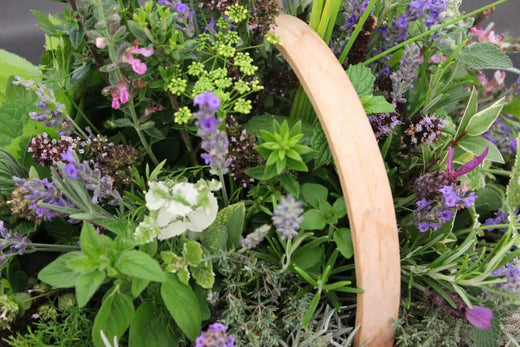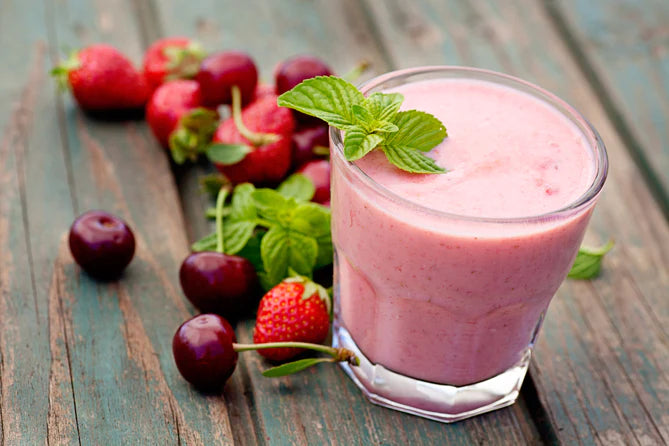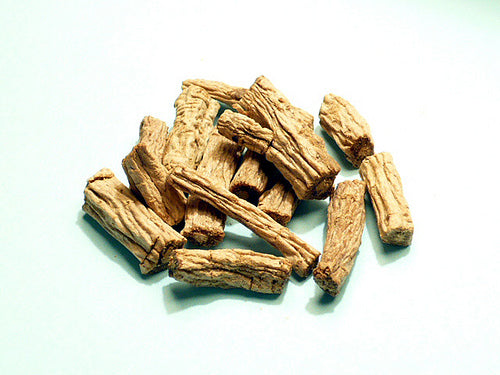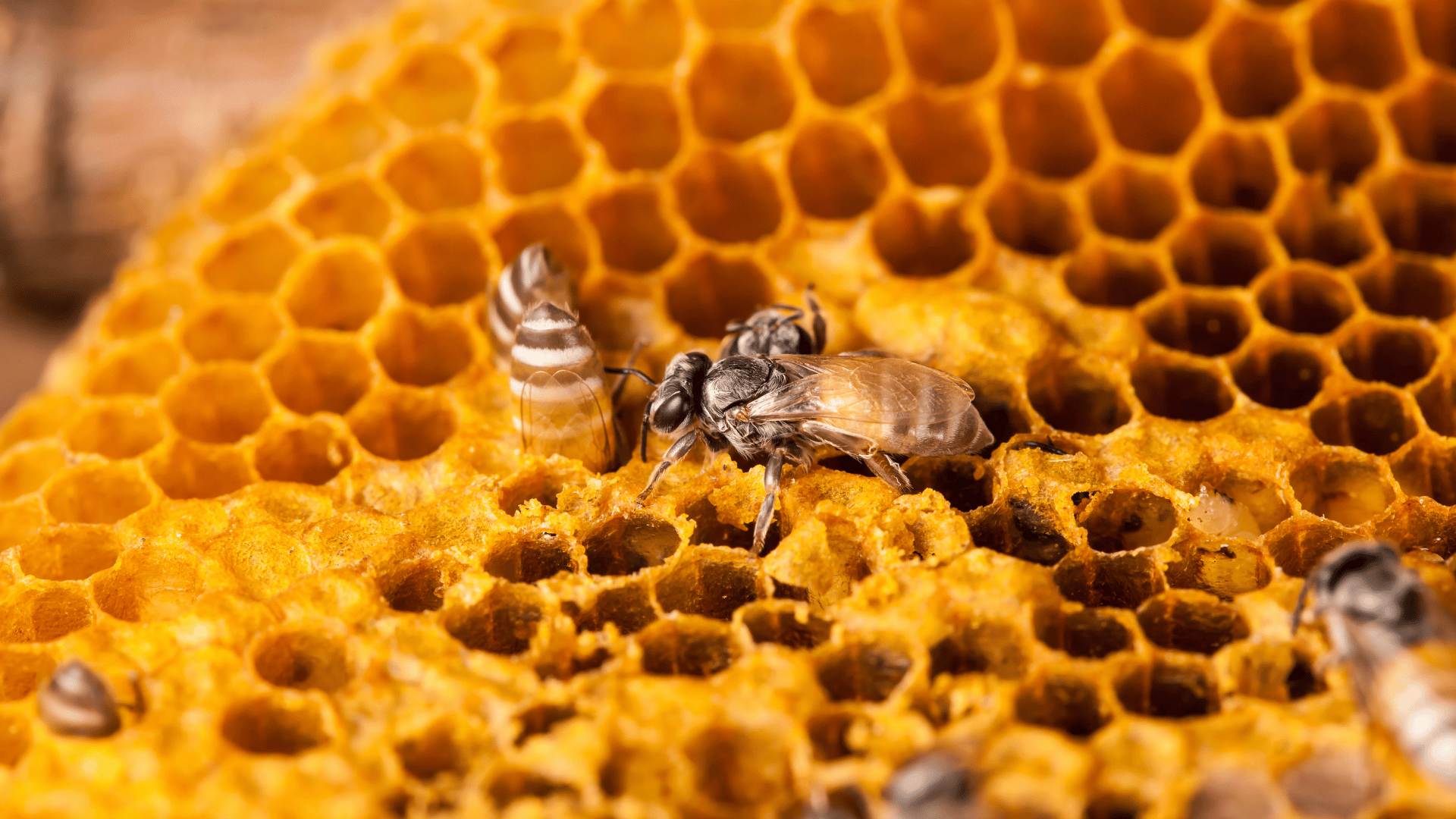
Holy Basil: Discover Why Tulsi Is the Queen of Herbs
Written by Taylor Stewart, CHShare
How could one herb earn such a royal title? Tulsi, also commonly known as holy basil, has captivated healers, spiritual practitioners, and wellness enthusiasts for thousands of years. This herb is a beloved botanical that has roots in ancient practices but continues to stand the test of time.
From its sacred status in Hindu households to its growing recognition in contemporary wellness circles, the benefits of holy basil offer a fascinating blend of spiritual significance and scientifically backed health benefits that make it truly deserving of its queenly status.
What Is Holy Basil?
Tulsi (Ocimum sanctum) is an annual plant belonging to the mint family with a square stem, opposite leaves, and white, pink, or purple flowers. The plant is native to India but grows throughout Asia. Holy basil differs significantly from Thai basil you might find in cooking. While both are part of the basil family, holy basil has therapeutic compounds concentrated in the leaves, which are harvested just before the plant flowers, usually in early summer. This timing ensures maximum potency of the essential oil and other beneficial compounds. Holy basil contains vitamins C and A, calcium, zinc, iron, chlorophyll, and many other phytonutrients.
In India, there are strict ceremonial rules surrounding the harvesting of tulsi. The harvest must begin by asking forgiveness from the plant, reflecting the deep spiritual connection people have maintained with this sacred plant for millennia.
Organic cultivation methods treat herbs as living beings, handpicking and carefully drying tulsi to preserve beneficial constituents. The Vedic tradition speaks of the Prana, or life force of whole herbs, as a powerful tool for wellness. This approach respects the intelligence of nature and preserves herbal formulas in their original form, connecting ancient wisdom to modern wellness applications.
Scientific Studies on Holy Basil
Human clinical trials have shown the wide-ranging benefits of holy basil. Modern research has highlighted holy basil's effectiveness, discovering how the plant's unique combination of compounds works together to provide comprehensive wellness support across various body systems. This scientific validation helps bridge the gap between traditional wisdom and modern understanding of how taking holy basil supports overall health.
Key findings from modern research include several important areas where holy basil provides support:
- Cognitive function: Supports healthy memory, focus, and mental clarity.
- Microbial balance: Has an affinity for microbial balance and a healthy immune response
- Stress adaptation: Helps the body manage healthy stress responses and uplifts the mood.
Adaptogenic Support for Modern Stress
As the world becomes more fast-paced, stress has become a constant companion. This is where tulsi truly shines as nature's stress-soother, offering adaptogenic properties that help your body respond more effectively to both physical and emotional stress.
Holy basil helps the body maintain balance during times of stress and challenge. Unlike stimulants that provide temporary energy followed by crashes, holy basil helps restore normal function to your stress response system, supporting your body's natural resilience.
What's fascinating about tulsi is that it provides comprehensive protection against multiple stress types:
- Mental and emotional stress: Supports healthy mood and cognitive function during challenging times.
- Physical stress: Helps the body adapt to physical demands and supports recovery.
- Environmental toxins: Protects from environmental pollutants and heavy metals.
- Metabolic stress: Supports healthy blood sugar balance during periods of stress.
- Hormonal stress: Promotes balance in the endocrine system, supporting healthy hormone rhythms during times of change or strain.
Heart and Blood Vessel Support
Holy basil has long been cherished for the way it nurtures both heart and spirit. This beloved adaptogen is known to support healthy circulation, blood pressure already in the normal range, and overall cardiovascular balance. Taken regularly, it can help your system stay steady even when life feels anything but.
Because holy basil is adaptogenic, it shines during times of physical or emotional strain, helping the cardiovascular system respond with more ease. Herbalists often speak of its heart-protective qualities, reminding us that this plant offers comfort not just to the body but also to the whole self when stress lingers.
How to Use Holy Basil
Today, tulsi can be found in many forms, making it easy to incorporate this powerful herb into your daily wellness routine. Understanding the different forms helps you choose the best option for your lifestyle and wellness goals.
- Tinctures: Concentrated liquid extracts that provide quick absorption and potent effects.
- Capsules and tablets: Convenient pill or capsule form for consistent daily dosing.
- Tea blends: Traditional holy basil tea offers a gentle and enjoyable experience.
- Dried leaf powder: A versatile form for smoothies, food, or homemade tea.
- Essential oil: Concentrated aromatic compounds for topical use or aromatherapy.
Each form of holy basil has its place, but tinctures often stand out for everyday use. A liquid extract offers fast absorption, making it easy for the body to access the herb’s active compounds quickly. Just a few drops can deliver concentrated support, and the flexibility of adjusting your serving size makes tinctures both potent and convenient.
Tea provides gentle, soothing support and a calming ritual, while capsules may appeal to those who prefer a consistent, standardized option. Still, for many herbalists and everyday users alike, tinctures remain the go-to for both strength and ease.
Herb Pairings for Additional Support
Holy basil doesn't always work alone. Herbalists often combine it with other plants to create well-rounded formulas that meet the body on multiple levels. Pairing tulsi with complementary herbs can enhance its adaptogenic qualities, broaden its benefits, and provide deeper nourishment for both body and mind.
- Ashwagandha (root): A well-known adaptogen that supports a healthy stress response and helps the body maintain balance during demanding times.
- Milky Oat (aerials): Helps soothe, strengthen, and restore the nervous system, especially during periods of depletion or emotional strain.
- Nettle (aerials): Nutrient-rich and full of vitamins and minerals that replenish and fortify the body.
- Lemon Balm(leaf): Offers calming support for the nervous system and promotes relaxation with its gentle, uplifting qualities.
- Scullcap (aerials): Traditionally used to ease nervous tension and support a calm, steady mood.
WishGarden Formulas Featuring Holy Basil
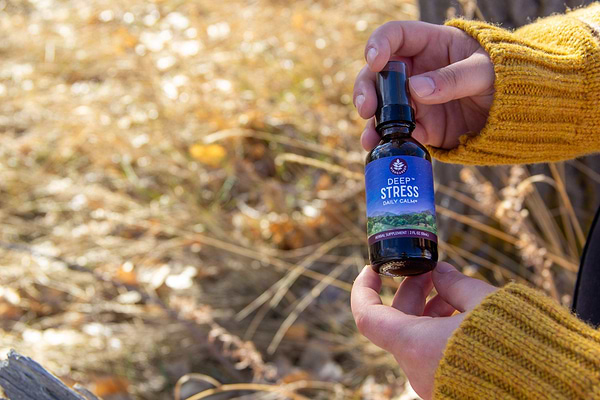
Holy basil shows up in several WishGarden blends, bringing its adaptogenic, stress-soothing, and balancing qualities to the team of herbs it joins. Here’s where you’ll find it:
- Holy Basil Single Tincture - Pure, concentrated tulsi that delivers this adaptogen in its most direct and potent form, supporting calm, resilience, and everyday balance.
- Deep Stress – Combines holy basil with other adaptogens to help the body respond to emotional and physical stress, restoring a sense of ease to the nervous system.
- Chlorophyll & Friends – A nourishing blend where holy basil contributes its grounding adaptogenic properties, supporting overall vitality and healthy detoxification.
- Cycle Changes – Formulated to support women through perimenopause and menopause, with holy basil playing a role in easing stress and promoting emotional steadiness during the menstrual cycle.
- Hot Flash Tamer – Pairs holy basil with herbs traditionally used for menopausal symptoms, where tulsi’s adaptogenic nature supports the body’s response to hot flashes and hormonal transitions.
- Cycle Vitality 1 – Designed to encourage balance and energy during the luteal phase of the menstrual cycle, with holy basil supporting resilience, mood, and overall well-being.
Safety Considerations and Contraindications
While holy basil is generally considered safe for most people when used appropriately, it's essential to understand potential drug interactions and precautions. Like all herbs, holy basil may not be suitable for everyone in every situation, and understanding these safety considerations ensures you can enjoy the benefits while minimizing any risks.
Blood-Related Interactions
- Blood clotting concerns: Holy basil may affect blood clotting, which could be problematic for those taking medications that slow blood clotting.
- Blood pressure effects: Since holy basil can affect blood pressure, monitor levels if you're taking blood pressure medications.
- Blood sugar interactions: Individuals managing diabetes should monitor their blood sugar levels, as holy basil may have an effect on levels and diabetes medications.
- Thyroid considerations: Some sources suggest potential interactions with thyroid hormone thyroxine.
When to Avoid Holy Basil
- Pregnancy and nursing: The safety of holy basil use during pregnancy and breastfeeding hasn't been established and is best avoided during these times.
- Fertility concerns: Animal studies suggest potential effects on fertility.
- Bleeding disorders: Those with conditions that slow blood clotting should avoid holy basil.
- Pre-surgical patients: Discontinue use at least two weeks before scheduled surgery due to potential blood-clotting effects.
Always consult with a qualified healthcare provider before adding holy basil to your wellness routine, especially if you have any existing health conditions or take medications regularly.
FAQs – Holy Basil Benefits
Can I take holy basil every day?
Yes, holy basil is generally safe for daily use when taken in appropriate amounts. The adaptogenic nature of holy basil makes it well-suited for regular, longer-term wellness support, though periodic breaks help maintain your body's sensitivity to the plant's effects.
Most herbalists recommend taking holy basil consistently for several weeks to experience its full adaptogenic benefits, then taking occasional breaks to prevent tolerance buildup.
Which is better for me, holy basil or ashwagandha?
Both holy basil and ashwagandha are excellent adaptogenic herbs with different strengths. Holy basil excels in comprehensive stress support, as well as providing respiratory, immune, and metabolic benefits, while ashwagandha supports energy levels and physical performance.
Many people find that combining both adaptogens provides more complete stress support than using either herb alone, as they work through different pathways in the body.
What does holy basil do to hormones?
Holy basil helps support healthy hormone balance primarily through its effects on the stress response system. By allowing your body to manage stress more effectively, you can indirectly support the balance of stress hormones, such as cortisol, throughout your endocrine system.
Research suggests that holy basil may help balance cortisol levels and support healthy blood sugar regulation, both of which contribute to overall hormonal balance.
Is holy basil safe for long-term use?
Holy basil has been safely used for thousands of years in Ayurveda, and modern research supports its safety for most individuals when used appropriately. Regular check-ins with a healthcare provider help ensure continued safe use.
As with any herbal supplement, it's wise to take periodic breaks and monitor how your body responds to long-term use, especially if you take other medications or have health conditions.
Embracing the Queen of Herbs
Whether you're seeking stress support, immune system strengthening, or connection with a time-tested herbal ally, the benefits of holy basil provide gentle yet effective wellness support. Its adaptogenic properties make it particularly valuable in our stress-filled lives, offering comprehensive benefits that address mind, body, and spirit.
Taylor Stewart studied herbal medicine through PrairieWise Herbal School and The Herbal Academy. She’s passionate about sharing the gifts of plant medicine and how herbs can help us live more in tune with our bodies. She is the Practitioner Sales Specialist and a Customer Journey Representative at WishGarden Herbs.
For educational purposes only. This information has not been evaluated by the Food and Drug Administration. This information is not intended to diagnose, treat, cure, or prevent any disease, or to sell any product.







